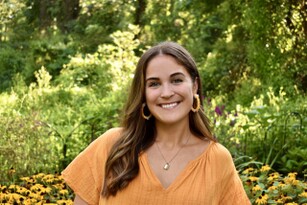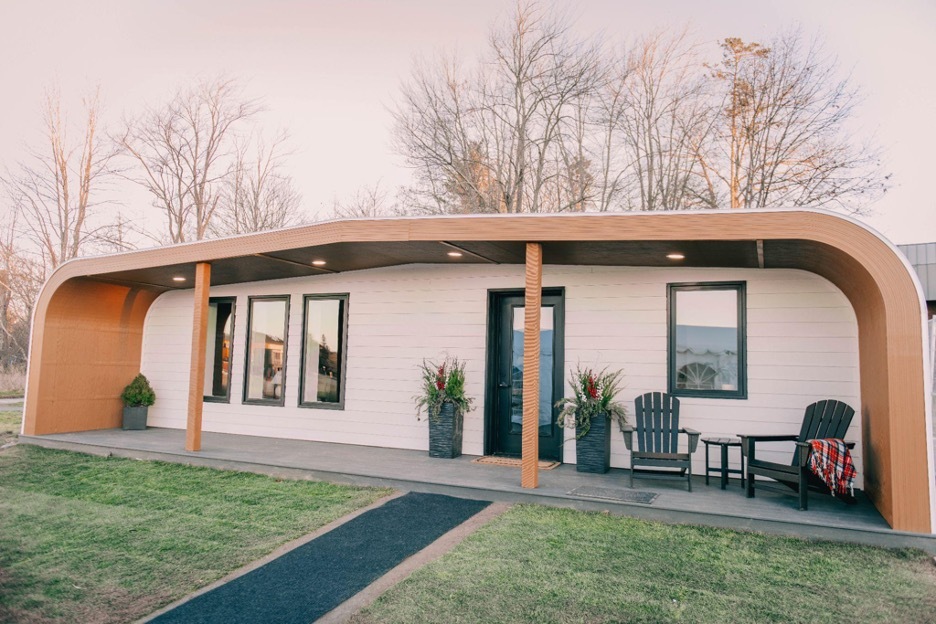November 2024 The Shift e-newsletter
Free webinar: Data Visualization | Polymer composite R&D and LCA at UMaine | Upcoming Training
Free Webinar
Visual Storytelling in LCA:
From Data to Decision-Making
DATE: November 14, 2024
TIME: 1:00pm - 2:00pm EST
PRESENTER: Tess Konnovitch, Data Visualization Specialist, EarthShift Global
DESCRIPTION:
In today's data-rich environment, effective visualization is essential for Life Cycle Assessment (LCA) practitioners aiming to turn complex datasets into actionable insights. This talk explores current visualization practices among LCA practitioners, innovative techniques for visualizing complex and unconventional datasets, Microsoft Office tips and tricks, and client success stories that showcase the impact of effective visual storytelling. Attendees will leave with a deeper understanding of how to apply best practices in LCA visualization, ultimately driving better decision-making and promoting sustainability within their organizations and beyond. Whether you're a seasoned LCA practitioner or new to the field, this webinar promises to equip you with the knowledge and skills to elevate your data visualization capabilities and enhance your storytelling impact. Don't miss this opportunity to learn how to make your LCA data speak volumes and drive change.
PRESENTER BIO:

Tess applies a combination of scientific knowledge and experience in art, design, and teaching to the development of data visualizations that uncover insights and convey essential findings to broad audiences. She conducted extensive laboratory, computational, and field work while earning BS degrees in Biology and Environmental Science from LaSalle University and an MS in Computational and Integrative Biology from Rutgers University, and is a longtime artist and designer.
Tess provides value added support to EarthShift Global’s sustainability consulting and clients, and development of EarthShift Global software tools.
Exploring Fiber-Reinforced Polymer Composites at the University of Maine
EarthShift Global is proud to support colleges & universities around the globe with our software tools and collaborations. In this article, Pratibha Sapkota and Reed Miller from the University of Maine discuss their research and applications for fiber reinforced polymer composites.
Fiber reinforced polymer (FPR) composites are materials made by combining a polymer matrix with reinforcing fibers such as glass, carbon, wood, basalt or aramid. These composites have properties that offer high strength to weight ratio, high durability and resistance to corrosion, wear, impact and fire making them ideal for construction, aerospace, automotive and marine applications. (Rajak et al., 2019)
Composites R&D at the University of Maine
The Advanced Structures and Composites Center (ASCC) at the University of Maine (UMaine) is known for its work in innovative infrastructure solutions while aiming to further the circular economy and decarbonization of the manufacturing process. Key technologies include using large-format extrusion-based additive manufacturing to create the BioHome3D (Figure 1), the G-Beam composite bridge girder, thermoplastic composite rebar, and the VolturnUS floating offshore wind platform technologies. The Transportation Infrastructure Durability Center of the ASCC is focused on enhancing the durability and sustainability of transportation infrastructure and is supporting research on LCA of composites.
On Oct 29, 2024, the ASCC broke ground on the Green Energy and Materials: Factory of the Future , which will focus on “revolutionizing manufacturing through AI-enabled, large-scale bio-based advanced manufacturing” and prepare the workforce for such revolution.

Figure 1: BioHome3D, a 600-square-foot prototype house features 3D-printed floors, walls and roof of wood fibers and bio-resins
Composites LCA research at UMaine
Assistant Prof. Reed Miller joined UMaine in 2023 with a joint appointment in Civil & Environmental Engineering and the ASCC. He is bringing his background in LCA from the Yale Center of Industrial Ecology and MIT Material Systems Lab to assess the impacts of FRP composites and explore opportunities for circular economy and strategic material selection. Miller is collaborating with EarthShift Global to create an online microcredential introducing the fundamentals of LCA and EPDs.
Miller’s graduate students, Pratibha Sapkota, Josephine Adu-Gyamfi, and Fatemeh Kiani Salmi, are working to characterize the variability of cradle-to-gate environmental impacts of common composite feedstocks in published LCA studies. The feedstocks include ABS, aPLA and PETG polymers and reinforcing fibers made of carbon, wood flour, and glass.
Upcoming Online Training
Sustainability in Package Design
November 13-14, 2024
Practical Life Cycle Assessment
December 4-5, 2024
Advanced Life Cycle Assessment: Anticipatory LCA
January 15-16, 2025
Introduction to Sustainable Return on Investment (S-ROI)
February 5, 2025